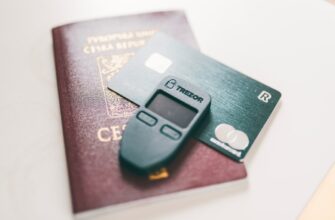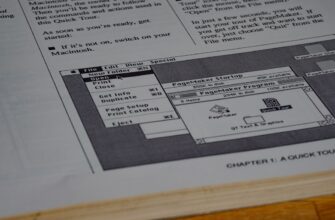🔐 USDT Mixer — Total Privacy for Your Crypto
Experience fast and secure USDT TRC20 mixing. 🌀
No accounts. No records. Just full anonymity, 24/7. ✅
Service fees start at only 0.5%.
As NFTs (Non-Fungible Tokens) explode in popularity, many Australians are discovering profitable opportunities in the digital asset space. But with profits come tax obligations. Understanding how to pay taxes on NFT profits in Australia is crucial to avoid penalties and stay compliant with the Australian Taxation Office (ATO). This comprehensive guide breaks down everything you need to know about NFT taxation under Australian law.
- How NFTs Are Taxed in Australia
- Calculating Your NFT Capital Gains
- Critical CGT Discounts and Concessions
- When NFT Trading Becomes a Business
- Essential Record Keeping Requirements
- Reporting NFT Income on Your Tax Return
- GST Considerations for NFTs
- Frequently Asked Questions (FAQ)
- Seeking Professional Advice
How NFTs Are Taxed in Australia
The ATO treats NFTs as capital assets, similar to shares or property. When you sell an NFT for more than your acquisition cost, you trigger a Capital Gains Tax (CGT) event. Key principles include:
- Profits from occasional NFT sales are subject to CGT
- Frequent trading may classify you as a “trader,” making profits ordinary income
- Losses can offset capital gains from other investments
- All transactions must be recorded in Australian dollars (AUD)
Calculating Your NFT Capital Gains
To determine taxable profit, use this formula: Capital Gain = Sale Price – Cost Base. Your cost base includes:
- Original purchase price of the NFT
- Gas fees and transaction costs
- Minting expenses
- Platform commissions
Example: If you bought an NFT for 1 ETH ($2,000 AUD) with $100 in fees, then sold it for 3 ETH ($6,000 AUD) with $150 in fees:
Cost Base = $2,000 + $100 = $2,100
Capital Proceeds = $6,000 – $150 = $5,850
Capital Gain = $5,850 – $2,100 = $3,750
Critical CGT Discounts and Concessions
Australian residents may qualify for valuable tax reductions:
- 50% CGT Discount: If you held the NFT for over 12 months before selling, only half the gain is taxable
- Personal Use Asset Exemption: May apply if NFT was acquired for under $10,000 AUD for personal enjoyment (rare for investment NFTs)
- Small Business Concessions: Potential additional discounts if NFT activities qualify as a business
When NFT Trading Becomes a Business
The ATO may classify you as a trader (not investor) if you:
- Buy/sell NFTs frequently
- Operate in a business-like manner with business records
- Modify or develop NFTs before sale
- Depend on profits for income
As a trader, profits are treated as ordinary income (taxed at marginal rates) and you can claim business deductions for expenses like software, marketing, and home office costs.
Essential Record Keeping Requirements
Maintain these records for 5 years after filing your return:
- Transaction dates and times
- Wallet addresses involved
- NFT identification details (contract address, token ID)
- Cryptocurrency values in AUD at transaction time
- Receipts for all associated costs
- Screenshots of blockchain explorers verifying transactions
Reporting NFT Income on Your Tax Return
Report gains in your annual tax return:
- Investors: Include net capital gains at Item 18 (Capital gains)
- Traders: Report as business income at Item 1 (Business and professional items)
- Always convert foreign currency amounts using exchange rates at transaction time
GST Considerations for NFTs
Generally, NFT sales don’t attract GST as they’re considered financial supplies. Exceptions may apply if:
- You’re registered for GST and selling as a business
- NFT provides ongoing rights or services
- Physical assets accompany the NFT
Frequently Asked Questions (FAQ)
Q: Do I pay tax if I transfer NFTs between my own wallets?
A: No – transfers between wallets you own aren’t taxable events. Only disposals to third parties trigger CGT.
Q: How are NFT airdrops and giveaways taxed?
A: Free NFTs are considered ordinary income at market value when received. If you later sell, CGT applies to any further gain.
Q: What if I bought NFT with cryptocurrency?
A: Spending crypto to buy NFTs triggers a CGT event for the cryptocurrency. You must calculate gain/loss on the crypto disposal separately.
Q: Can I deduct NFT investment losses?
A: Yes – capital losses offset capital gains. Unused losses carry forward indefinitely. Business losses may be deductible against other income.
Q: Are NFT creators taxed differently?
A: Yes – income from minting and selling original NFTs is generally ordinary income. Creators can deduct related expenses like platform fees and design costs.
Q: How does the ATO track NFT transactions?
A: Through data matching with cryptocurrency exchanges, blockchain analysis, and international agreements. Always assume transactions are visible.
Q: What penalties apply for non-compliance?
A: Failure to report may result in penalties up to 75% of tax avoided plus interest. In severe cases, criminal prosecution is possible.
Seeking Professional Advice
NFT taxation involves complex scenarios like DeFi integrations, fractional ownership, and cross-border transactions. Consult a crypto-savvy tax accountant to:
- Determine investor vs. trader status
- Optimize CGT discounts
- Handle multi-currency records
- Plan for upcoming ATO compliance measures
With clear records and professional guidance, you can confidently navigate NFT taxation while maximizing legitimate savings. Always stay informed – ATO guidelines continue evolving alongside this dynamic asset class.
🔐 USDT Mixer — Total Privacy for Your Crypto
Experience fast and secure USDT TRC20 mixing. 🌀
No accounts. No records. Just full anonymity, 24/7. ✅
Service fees start at only 0.5%.








